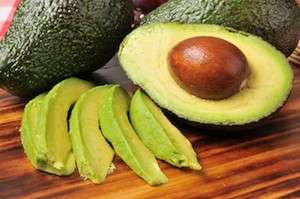August 17, 2016
Collagen is the most abundant protein in the body. It is a primary building block of skin, hair, nails, bones, tendons, joints, and cartilage. In fact, it comprises about 90% of organic bone mass, and up to 70% of our skin is made up of collagen. It also supports our internal organs. It is, essentially, the “glue that holds the body together”.
The type II collagen is a particular type of collagen predominant in humans, and shares the same characteristic with the dietary supplements such as shark gelatin. The collagen type II is commonly called as CII.
The main purpose of the collagen is for the treatment of joint pain and arthritic conditions. It is a dietary protein source (collagen or gelatin protein) with a good absorption from the intestinal tract and high consumer tolerance. These supplements are derived from animals and thus not vegan-friendly.
There are many types of collagen such as:
- Shark-derived CII which seems to be effective as a dietary supplement.
- Porcine CII has shown the same efficacy as well.
- Chicken sternum has shown to be a source of CII.
The Collagen may also be derived from bovine articular cartilage, but due to the Mad Cow Disease alternate sources are being researched since some Scientists believe that there is a risk of infection associated with bovine sources.
Several mammals and fish have been shown to be possible sources of collagen, and each source appears to be quite similar as the ones mentioned before.
The many benefits of a regular collagen intake include:
- Neurogenesis
Neurogenesis refers to the growth and development of nervous tissue. Scientific evidence suggests that peptides found in low molecular weight collagen supplements may increase neurogenesis after oral administration.
- Osteoblasts
Osteoblast are the cells that make bones. Some studies have shown that the de novo synthesis of type I collagen may have a role in promoting osteoblastic differentiation (creation of new bone cells).
- Collagen and Joints
Studies have shown that oral supplementation of un-denatured CII at 40mg a day (for four months) in persons reporting joint pain but with no history of arthritis. The supplementation was effective in improving knee range of motion and a longer time for joint pain to occur during exercise and faster recovery. Also maximal benefits were found three months after supplementation and maintaining.
It is important to mention that low dose collagen appears to be effective for joint pain experienced during exercise despite not affecting whole-day joint pain.
- Bone Density
It is possible to increase bone mass mildly when high doses (estimated 10g) with a low protein diet but when the overall protein intake is increased, this benefit is lost and it performs equally to other protein sources.
As a side note, currently the only human study using collagen and investigating bone mass noted that supplementation of 10g collagen protein alongside intravenous injections of calcitonin (hormone that regulates the blood’s calcium and phosphate levels in the body) noted an increase in bone mineral density over the course of 24 weeks in osteoporotic women.
- Osteoarthritis
Studies have shown that an oral supplementation of 10g hydrolyzed collagen daily for six months in subjects with osteoarthritis was noted to reduce pain, but failed to affect other parameters such as stiffness and function.
- Rheumatoid Arthritis
In persons with severe active rheumatoid arthritis treated with oral ingestion of solubilized type II collagen (0.1mg for one month, 1mg for two months) showed the decrease of symptoms on joints (swelling, pain, and tenderness) for 90 days appeared. This also preserved 15 minutes walking time relative to placebo which benefitted to a lesser degree. It is important to mention that with four subjects in the collagen group (14% of the sample) reporting resolution of rheumatism.
In another study, it was noted that the cessation of supplementation for three months was associated with symptoms returning. The reintroduction of the supplementation after this period showed benefits.
By about 25 years old, the production of collagen begins to decrease and cell structures start losing their strength.
As a result, metabolism begins to slow and the typical signs of aging: loose skin, wrinkles, joint pain, low bone density, thinning hair, begin to show.
Maintaining and fostering optimal levels of collagen helps with virtually every function in the body, as well as supports:
- healthy gut repair by stimulating HCl production (stomach acid) due to high concentrations of amino acid glycine, to improve digestion and nutrient assimilation
- healthy brain function
- improved mobility, healthier muscles, bones and joints
- supports weight management (has a satiating effect)
- maintains vibrant, resilient skin
- promotes improved sleep
Natural foods that can help the body maintain collagen-production include:
- soy products (for their genistein properties)
- dark green vegetables
- vitamin C rich foods (papaya, broccoli, spinach, bell peppers)
- beans (contain a vital anti-ageing substance calledhyaluronic acid)
- prunes (anti-oxidant rich)
- foods rich in sulphur content (green and black olives, garlic, onions, cucumbers, celery)
- vitamin A rich foods (carrots, cantaloupe, sweet potatoes)
- turkey (contains a protein called carnosine that helps keep skin elastic)
- avocado and its oil (proven to stimulate collagen production and increase the proportion of soluble collagen in the dermis of your skin)
Collagen Supplements can be taken in two forms: Hydrolyzed Collagen or Un-denatured Type II Collagen.
Hydrolyzed collagen powder which dissolves easily in water or other liquid and is great for using in smoothies or mixing with water or juice. Gelatin thickens in liquid and creates a gel-like texture, making it perfect to use to thicken a soup or for making your own gummy bears or jelly candies.
Want to learn more about the difference between Gelatin and Collagen protein? Here’s the answer.
In addition to adding more collagen-supportive whole foods to your diet, supplementing with collagen protein powder is a breeze! Numerous studies support the effectiveness and the safety of mixing this easily digestible, tasteless, odourless and nutrient-dense protein into water, smoothies, added to soups or stews, or even in baking – providing a blood sugar stabilizing addition due to the fact that it’s a complete protein with all essential amino acids. Bonus!
SUMMARY:
- Collagen is the most abundant protein in the body
- Its production in the body starts to decline after age 25
- There are natural foods we can eat that help the body maintain collagen-production
- Two forms of this supplement exist: Hydrolyzed collagen and Gelatin
- Research shows that both are effective and safe
- Main areas of supportive research: Neurogenesis-Osteoblasts-Joint Health-Bone Density-Osteoarthritis-Rheumatoid Arthritis
Order your collagen (and any other supplements you need!) from our trusted medical grade online dispensary.
Save 10% and enjoy shipping direct to your door 😁
ORDER HERE
.
Inquisitive mind seeking more information:

James P. Lugo, Zainulabedin M. Saiyed and Nancy E. Lane Nutrition Journal 2016
A study of efficacy and tolerability of collagen supplementation on osteoarthritis, one hundred ninety one volunteers participated in a multicenter randomized, double-blind, placebo-controlled study and showed improved knee joint symptoms over a placebo over a 180 day period, and was well-tolerated
http://www.jbc.org/content/260/7/3955
April 10, 1985 The Journal of Biological Chemistry260, 3955-3962.
Dieting/Fasting Reduces Collagen Production:
Study concluded that fasting, even with vitamin C supplementation, had a detrimental effect on collagen production, and was independent of age, sex, ascorbate status, species of animal, and type of connective tissue.
[/fusion_text][/fusion_builder_column][/fusion_builder_row][/fusion_builder_container]
Why Supplement with Collagen?
The entire contents of this website are based upon the opinions of Build Holistic Nutrition. Please note that Build Nutrition is not a dietitian, physician, pharmacist or other licensed healthcare professional. The information on this website is NOT intended as medical advice, nor is it intended to replace the care of a qualified health care professional. This content is not intended to diagnose or treat any diseases. Always consult with your primary care physician or licensed healthcare provider for all diagnosis and treatment of any diseases or conditions, for medications or medical advice, as well as before changing your health care regimen.
© BUILD NUTRITION 2026. ALL RIGHTS RESERVED. PRIVACY POLICY
Go ahead, creep us on social. You know you want to!

